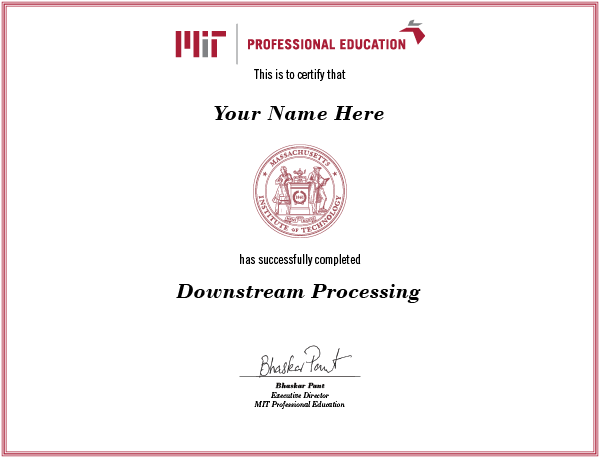Explore the innovative biotechnology strategies that are improving processes in biological industries around the world. Over the course of five days, you’ll acquire the tools and frameworks you need to enhance your organization’s downstream process—and drive increased value. Through highly interactive lectures and activities, you’ll examine traditional unit operations, as well as new concepts and emerging technologies, which offer benefits to biochemical product recovery.
THIS COURSE MAY BE TAKEN INDIVIDUALLY OR AS part of THE PROFESSIONAL CERTIFICATE PROGRAM IN BIOMANUFACTURING.
The type of content you will learn in this course, whether it's a foundational understanding of the subject, the hottest trends and developments in the field, or suggested practical applications for industry.
How the course is taught, from traditional classroom lectures and riveting discussions to group projects to engaging and interactive simulations and exercises with your peers.
What level of expertise and familiarity the material in this course assumes you have. The greater the amount of introductory material taught in the course, the less you will need to be familiar with when you attend.



